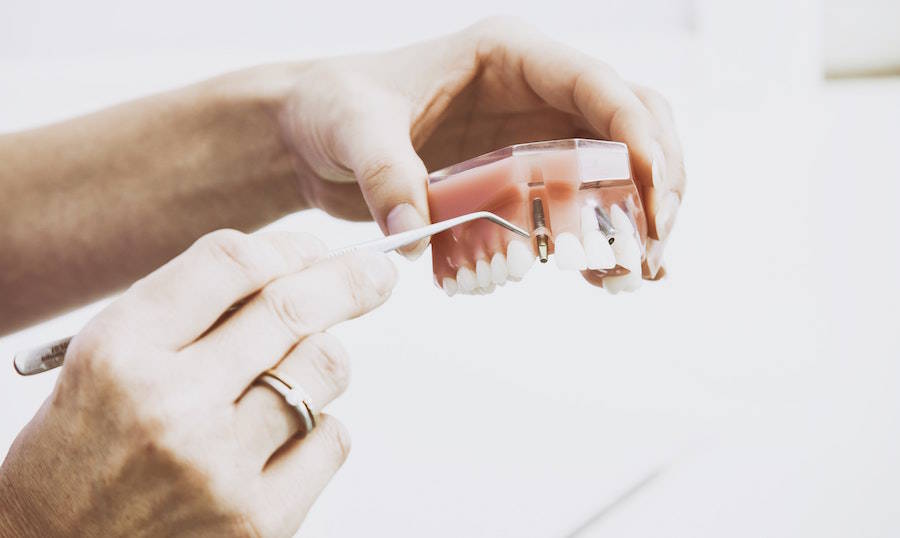
You’ve lost a tooth (or teeth) or had one (or more) removed and now you’re now faced with a tough decision – how replace it (or them)? Your options are pretty straight forward. You can either do nothing and live with it, get a dental bridge, a partial denture, or receive a dental implant. There’s a good chance that you already know that a dental implant can be one of the more costly (upfront, that is) alternatives, but you’re probably also well aware of the fact that it is the best alternative. In order to make the decision to move forward with an implant, you need to better grasp the benefits. As Greater Vancouver’s premier specialist in dental implants, we have more insight than most, which is why we’re here to provide clarity on the matter so that you can make a more informed (and better) choice to replace your missing teeth.
5 Reasons Why Dental Implants Are The Best Option for Replacing Missing Teeth
1. They Look More Natural Than Any Alternative
The biggest motivation for replacing a missing tooth, is aesthetic appearance, especially when the missing link (so to speak) is up front and center for all to see. This is where implants really shine.
For one, the alternative of doing nothing is not an alternative, even if the missing tooth is hidden by your cheeks. This is because overtime your jawbone will degrade without a tooth in place to keep it strong. The side of your face with a missing tooth may eventually sag, especially if you do not have a strong jawline to begin with. While dental bridges and dentures can fill the gap with onlookers being none the wiser, closer inspection evidences that something is amiss, as both alternatives cannot mimic the appearance of a natural tooth the way an implant can. Without an implant, you will forever remain conscious of your smile and may think twice before doing so, which is a shame.
2. They Don’t Compromise the Health of Adjacent Teeth
In typical bridgework, the teeth on either side of the gap are ground down (as unpleasant as it sounds) in order to attach the fixed bridge. By stripping away a significant portion of the adjacent tooth structure you comprise their own integrity. This can increase the risk of impediment to the anchor teeth and if either of the two become compromised to the point of disrepair, you don’t just lose one tooth, you lose the whole bridge, putting you not just back to square one, but worse. All of a sudden you could be looking at options for replacing a total of three teeth (assuming you were replacing only one in the first place).
3. Normal Oral Hygiene and Maintenance
Dental bridges come with a unique set of cleaning and maintenance challenges. Not only do you need to practice typical oral care (regular brushing and flossing) you need to clean in between the anchor teeth that are supporting the bridge as well as underneath the bridge. Special dental floss with a nylon threader is necessary, an option that is tricky for many given its slippery nature and the fact that it requires precise placement to navigate your way between the teeth. Interproximal brushes are another option, but their use is contingent upon whether or not you have enough space between the teeth. Alternatively, you may invest in a water flosser, which can help remove plaque and reduce the potential for gum disease and gingivitis. Long story short, the care for dental bridges can be more convoluted than you’re accustomed to.
Dental implants however, feel and function just like normal teeth (more on this below), and thus the care is the same. The only caveat, is that you may be missing a tooth due to poor oral hygiene so once you receive your implant, be sure to follow these oral hygiene best practices.
4. They Feel and Function Like Natural Teeth
When done right, a bridge can effectively and comfortably restore your dental functions. That being said, the fact that you have abutments cemented onto the teeth adjacent to your missing tooth will forever remain on your periphery. Then there are dentures, which could never provide the same feeling of having a full set of natural teeth.
Dental implants on the other hand, are as close to the real deal as possible. You won’t feel like a bionic man or woman after receiving a dental implant as they feel and function like normal healthy teeth. Your implant-supported dental prosthetic will allow you to bite, chew, laugh, smile, speak, and sing without a second thought, although there is nothing we can do to improve your singing voice through dentistry. At least not yet.
5. The Longterm Cost is Actually Lower Than the Alternative/s
A dental implant itself is made of titanium and will fuse with your jawbone through osseointegration, allowing it to serve as a stable, functional root that will not decay or corrode. A quality crown (placed on the implant) typically lasts 10 to 15 years, although with proper care they can absolutely last longer. A quality dental bridge however, typically lasts five to 10 years, and dentures range from five to eight years, although given their nature, dentures can be misplaced and/or poorly stored when not in use which can degrade them much more quickly. If you’re considering your dental health as a longterm investment (which you absolutely should) then the cost of professional dental implants is the more efficient alternative when spreading the cost over their lifetime. Your oral health is not a place to be cutting corners, but even if you plan on doing so, it simply makes more financial sense to go with sustainable quality.
For a consultation regarding a dental implant procedure, we encourage you to contact the Vancouver Dental Speciality Clinic today. If after the consultation you feel as if implants are not viable at this time, you will at the very least gain peace of mind that you have found a specialist that will provide the best possible materials and procedures for a dental bridge or denture. Call us today at 604.336.0958 for a noncommittal discussion about what we can do for your missing teeth.



